Action is the antidote’ – sixteen days in the movement to end fossil fuels.

At 8.25 on Friday 15th April, as the rush hour traffic poured off the M4 at Chiswick, four activists stepped out in front of an Eddie Stobart oil tanker. Two held up a banner declaring ‘Just Stop Oil’ whilst two others disabled the braking system and clambered up onto the back of the tanker. Passing drivers hurled abuse and soon the police were forced to close the interchange. In a statement to the press, Just Stop Oil declared they aimed “to stop the flow of oil in London”[1].
This was the fifteenth day of direct actions against oil distribution terminals in the South East and the Midlands taken in a determined attempt to shut down the supply of petrol and diesel to the gas stations of the metropolis. Initially eleven terminals has been targeted, though soon action focused on two in the Thames Estuary, another in West London and two in the Midlands.
At these latter pair, the Inter terminal at Grays and the Navigator terminal at West Thurrock – situated either side of the M25 as it crosses Dartford Bridge – protests had been intense and unrelenting. Several activists had climbed the fences of the Navigator depot and locked onto the fuel pumps within. Others had dug a tunnel under the entrance road. Still others had blockaded the roundabout close to the entrance. The Essex Police – assisted by officers drafted in from as far away as Wales – had made over four hundred arrests.
At five to midnight on Wednesday, in an event surely related, forty police officers had raided the London Action Resource Center in Whitechapel, East London. Eleven Extinction Rebellion and Just Stop Oil activists were arrested. On that same day the oil companies who owned the depots had begun to take out injunctions against activists – chief among these was Valero Energy, the US company long famous for its role in exporting fuel from the Canadian tar sands. (And the focus of a campaign by UK Tar Sands Network.)
Later in the afternoon of that Good Friday, I am pushing through the petroleum crowd towards Tate Modern. The throng is thick along the Thames at Bankside, thick with Londoners and visitors. Voices from other lands surely brought by cheap jet plane or high speed train. It is a shock to be thrown into the post-Covid world, which seems to mirror entirely the pre-Covid world. The tourist trade in the metropolis is back to its ‘norm’ – the continual flights in an out of Heathrow, Stansted, Gatwick, Luton. The oil still flowing through the veins of the city. The burning is back to its ‘norm’.
Above the sea of heads I catch glimpses of the sharp blue and pink of XR flags. Quivering in the breeze over what turns out to be an XR stall proclaiming ‘Information & Trainings’. Opposition to the burning.
After the long Pandemic dormancy the spirit of rebellion has awoken: in the boldness of Just Stop Oil at the oil depots, here among XR in the heart of London, in the demands of #Stop Cambo and #Stop Jackdaw, in new vitality of the Divest Fossil Fuels movement, in the campaigns to Kick Fossil Fuels out of Football, in the engagement of Greenpeace UK, Friends of the Earth and Global Witness in the fight against oil, and in the strengthening calls from the likes of Fuel Poverty Action. There is a rising tide … a driving pressure against oil, against fossil fuels. A new determination to set in for the long haul.
On the grass before Tate Modern are scattered the early audience. The mics are being tested and the stage set up before the backdrop reading
Oil is the Poison – Action is the Antidote.
This is a Writers Rebel event timed to be part of a week of actions by XR across London since the first banner drop at Tower Bridge on Friday 8th April.
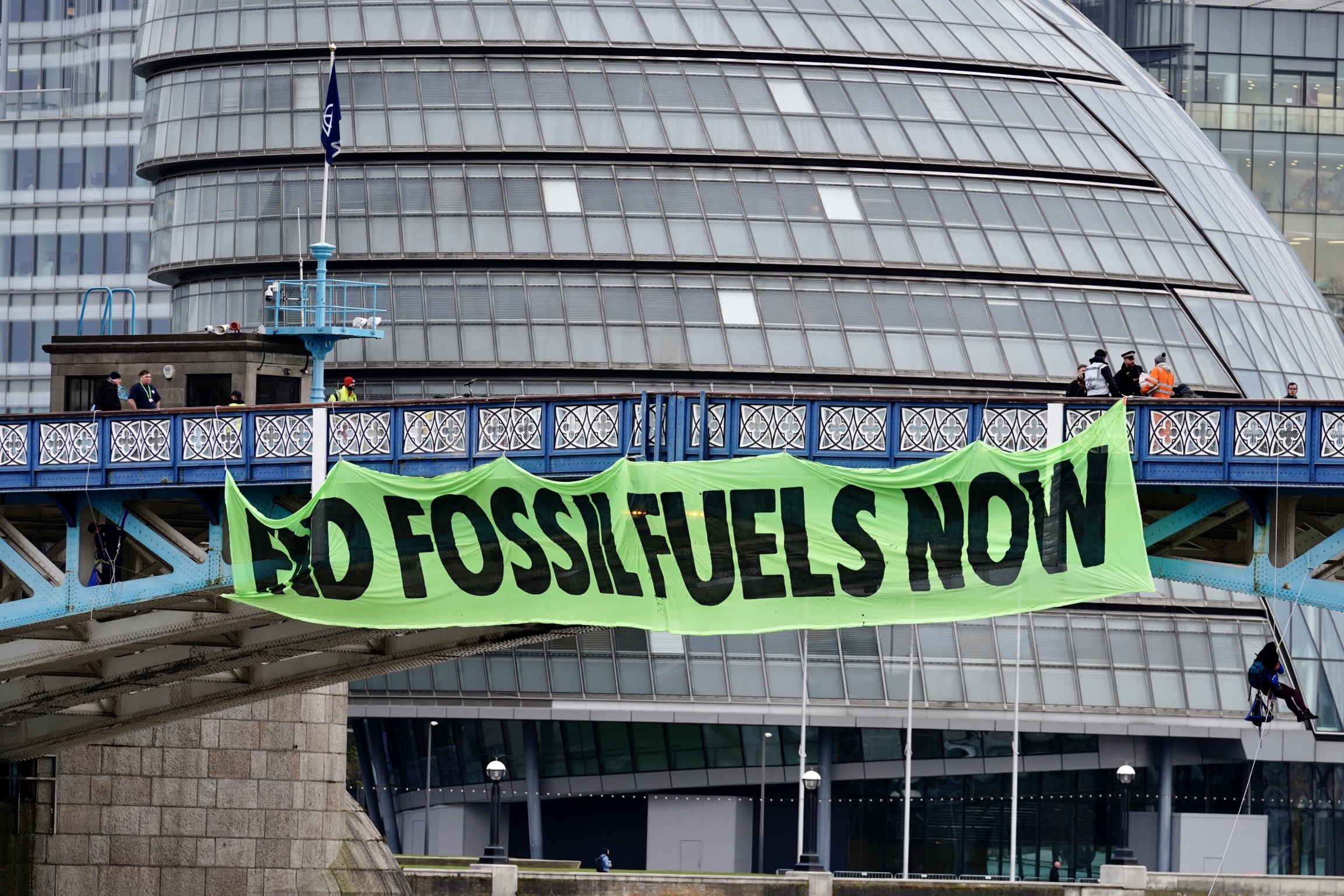
Climbers dangled above the Thames between the slogan ‘End Fossil Fuels Now’ which was splashed across front pages and news channels. The day after there was an XR march through London’s West End, with sit downs in Regent Street and Oxford Circus. The following day health workers blocked Vauxhall and Lambeth bridges, sitting in the road behind a banner that read ‘For Health’s Sake: Stop Financing Fossil Fuels.’ On the Tuesday, four days ago, 60 activists had blocked every entrance of Lloyds of London – the great insurance engine of fossil fuel investment – and the institution had to close for the day.

On Wednesday and Thursday members of XR had been arrested during an action at the London head office of Shell, after they had glued themselves to the building and managed to penetrate the building up to the eighth floor. Their request to Shell staff was to ‘Jump Ship’ or become whistle blowers, or ‘Truth Tellers.’ As Chloe Naldrett, a theatre producer from Bristol, explained:
“Shell have absolutely no intention of stopping investing in fossil fuels … They currently have plans to expand their fossil fuel business by 20% for the next few decades. And that, for me, is a death sentence for my children.”
On Thursday, twenty-five scientists from Scientists Rebel had glued themselves to the glass front of the Department of Business, Energy & Industrial Strategy in protest at the UK government’s new Energy Strategy, which includes licensing new oil & gas fields in the North Sea.

As Dr Aaron Thierry, an ecologist, explained:
“Last week the world’s scientists (of the Intergovernmental Panel on Climate Change) released a report that sounded the final alarm for the planet. It said we must end our addiction to fossil fuels now. The UK government’s response a few days later was to announce it will increase its exploration for oil and gas with the intention of extracting every last drop. Science tells us that this approach will condemn our civilisations to destruction. We will not stand by and let this happen.”
Nine scientists were summarily arrested[2]. Emma Smart, a marine biologist, was detained in Charing Cross Police Station and went on hunger strike against a cell with no windows and 24-hour sodium bulbs.
As we gather on the lawns of Tate, others are blockading bridges over the Thames at Lambeth, Blackfriars, Waterloo and Westminster[3], clogging the traffic arteries of the city.
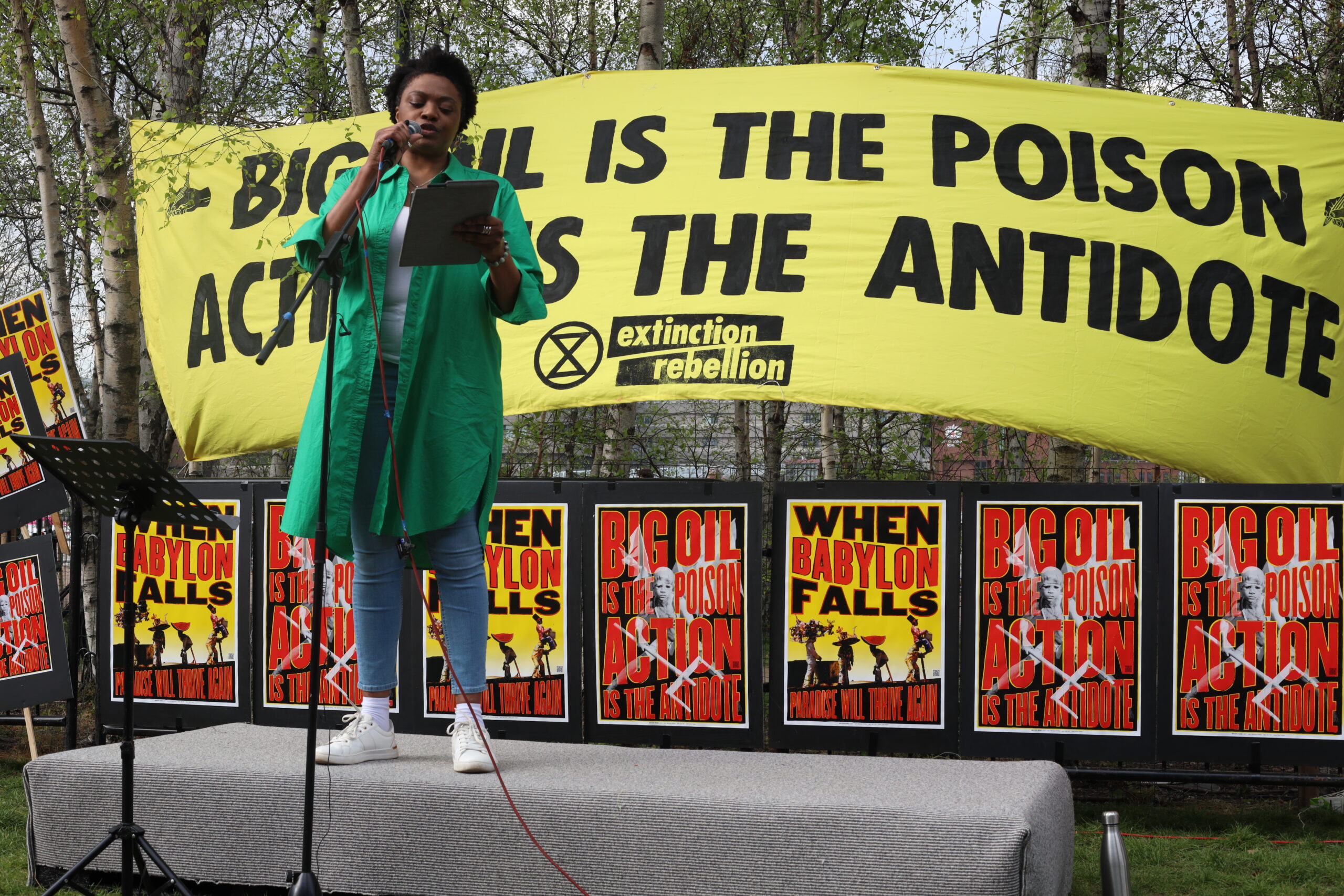
Zena Edwards takes the stage. Long shirt in the green of Nigeria and Ken Saro-Wiwa. Speaking and singing in her mellifluous tongue “We are the endangered species, but we say no to the victim’s song.”
The event has begun. Over the following two hours it unfolds through poets such as Raymond Antrobus, Liv Torc, Patience Agbabi, Nikita Gill and Lemn Sissay. Alongside them are writers including Inua Ellams, Courttia Newland, Maggie Gee, Alex Lockwood and Greg Norminton.
There’s a sense of speaking into existence a culture beyond oil. Tate was the sight of a long battle against the sponsorship of the arts by oil companies. After fifteen years of struggle by the likes of Lab of ii, Platform, Art Not Oil and Liberate Tate, the contract between BP and Tate was finally broken in early 2016 – as we describe in Crude Britannia. Now six years on, Tate is still reluctant to talk openly about that battle, but the institution has shifted its position. The Director of Tate gave consent for Writers Rebel on the museum’s lawn. For 25 years it would surely have been impossible to hang a banner reading ‘Oil is the Poison – Action is the Antidote’ next to gallery signage emblazoned with the BP sunflower logo? Things are shifting. The river of oil through the cultural institutions is drying up.
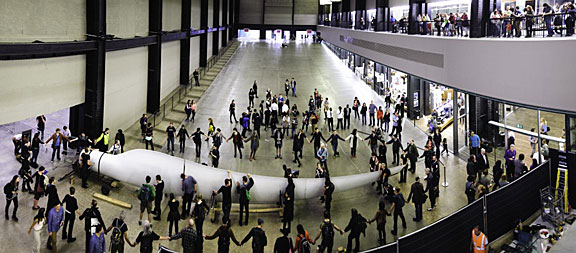
The sun is strong on the lawns of Tate. The banners and flags of XR bright in the warm afternoon. It seems far from the periphery of London – the off ramps of the M25, the Thames side oil deports away downstream. Far from the police cells in central London and southern Essex where Just Stop Oil and XR activists sit in detention. This is surely one mass, one movement, though at times barely aware of its extent or riven by resentments? A movement that evermore threatens the incumbency of the oil corporations.
On the last day of the Rebellion, Saturday 16th April, two Olympiads – Ettienne Scott and Laura Baldwin – occupied an oil road tanker in Bayswater, Central London. Later a car ‘broke down’ at Marble Arch, activists locked onto it and the traffic of the intersection was disrupted, and a massive banner – End Fossil Fuels Now – was hung from the Marble Arch itself.
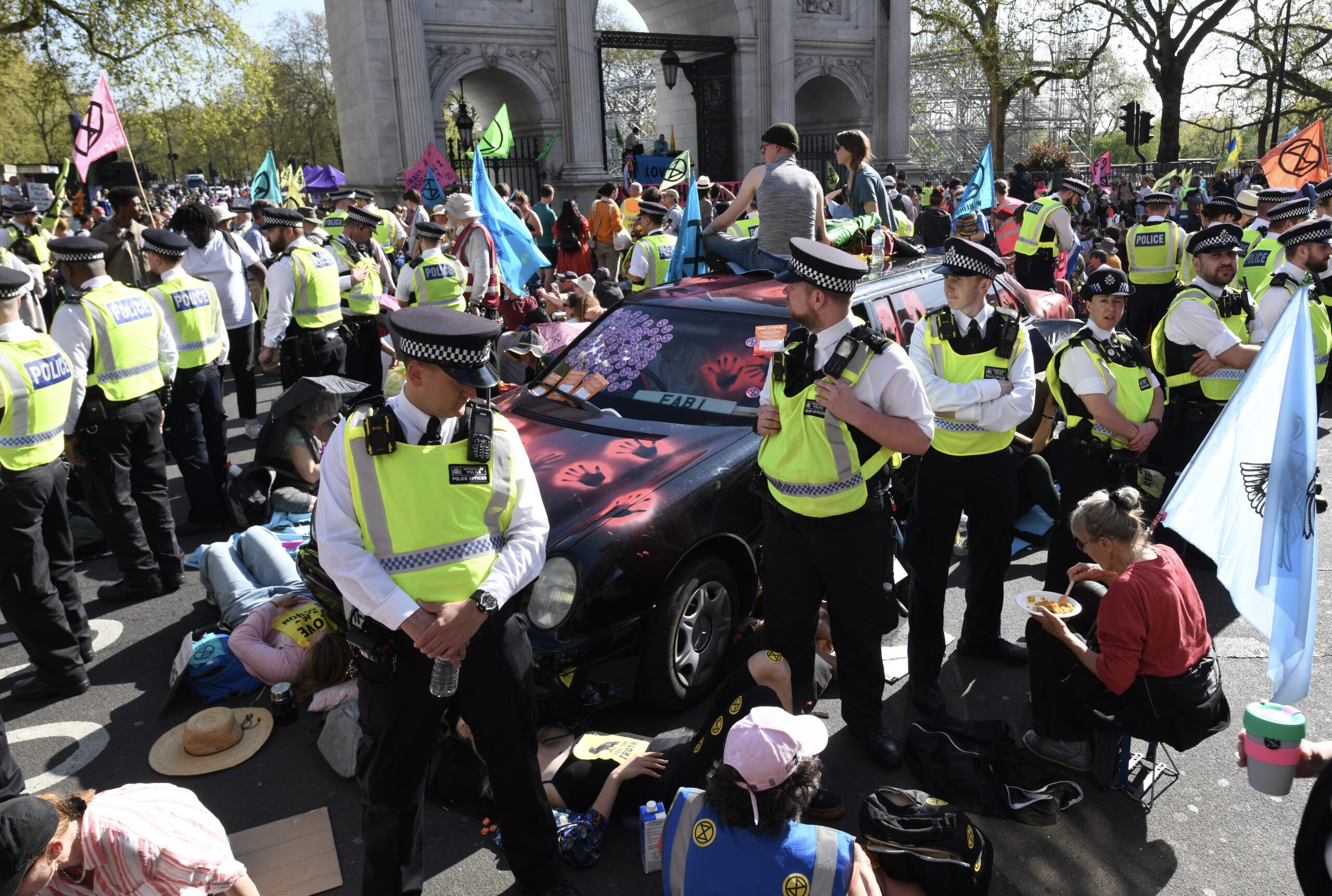
Perhaps unconsciously this movement draws on the long history of opposition to oil in Britain, again and again it picks up on the tactics of past decades. The invasion of Shell’s offices echoes actions by the protestors from Canvey Island in Essex in 1973 who invaded the offices of Occidental to resist their plans to build a refinery. The tunnels under the gateway to the Navigator terminal mirror the tunnels dug to resist the Newbury Bypass in 1993. The ‘broken down car’ at Marble Arch recalls the cars used to block roads and occupy the space for a street party by Reclaim the Streets in the late 1990’s. The Scientist Rebellion pasting their reports to the windows of the Department of Business echoes Climate Camp at Heathrow in 2007 marching under a banner reading ‘We are armed … only with peer-reviewed science’.
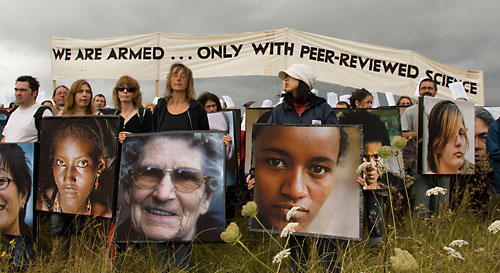
And Crude Awakening blockaded the entrance of the Coryton Refinery in 2010 just downstream from the Navigator terminal.

All these echoes of the past, but it feels that few weeks have seen protest that has been so multi-headed and involving a spectrum of society. These days seem to echo the movement around CND in the 1980s.
It echoes CND in another key aspect – in the attempt to include the future. Again and again the appeal of statements and banners is to ‘the children’, or ‘my children’s future’ or ‘the future of the more-than-human on this planet’.
Like CND this may be a long haul. (Even after seventy years the battle against nuclear weapons based in the UK is as difficult as ever.) It may be full of highs and lows. Like CND there is the unspoken limitation of a ‘unilateral declaration of no fossil fuels in UK’? If we end oil and gas licensing in the UK North Sea, if we end the financing of fossil fuels in the City of London, there is no guarantee that oil and gas extraction and investment will not take place out of Moscow, or New York, or Beijing, or the Gulf States. But as with CND, a principled stand must be taken somewhere and from that ‘multilateralism’ can be built – as is embodied in the campaign for a Fossil Fuel Non-Proliferation Treaty. (Although progress on these matters maybe substantially hindered by the wider impact of the Economic War surrounding the war in Ukraine – as we explored in an earlier blog.)
But it seems this movement is growing and becoming more focused. These sixteen days took place under a banners that called to ‘stop fossil fuels’, as opposed to the wider XR demand to ‘tell the truth about climate change’. And with this focus, XR and Just Stop Oil become more closely part of a wider movement, within a spectrum that includes the campaigns of #Stop Cambo and #Stop Jackdaw, the Divest Fossil Fuels movement, Fuel Poverty Action, and Greenpeace UK, Friends of the Earth, Global Witness and other NGOs.
Powerful events are underway. Powerful forces within UK business and politics will throw up massive obstacles, but there is a growing momentum for change. And it won’t be stopped.
*
Many thanks to Terry Macalister, Rob Noyes and Ben Lennon.
*
[1] https://www.theguardian.com/environment/2022/apr/14/just-stop-oil-protesters-scale-fuel-tanker-to-block-m4-access-in-west-london
[2] https://www.theguardian.com/environment/2022/apr/15/just-stop-oil-protesters-arrested-staffordshire-essex
[3] https://www.theguardian.com/environment/2022/apr/15/just-stop-oil-protesters-arrested-staffordshire-essex